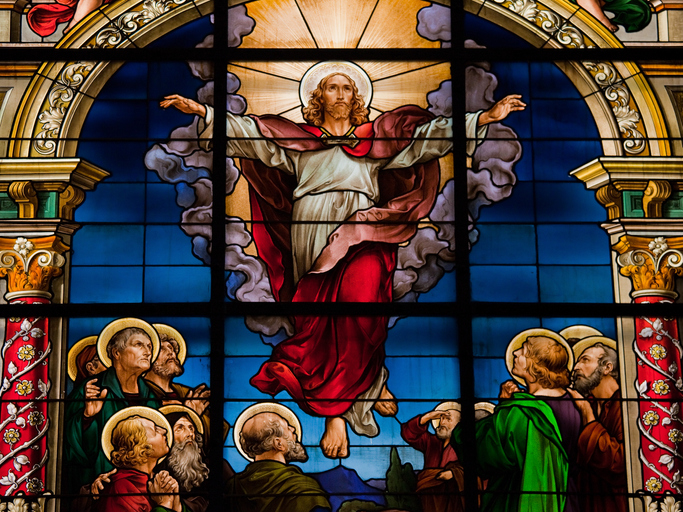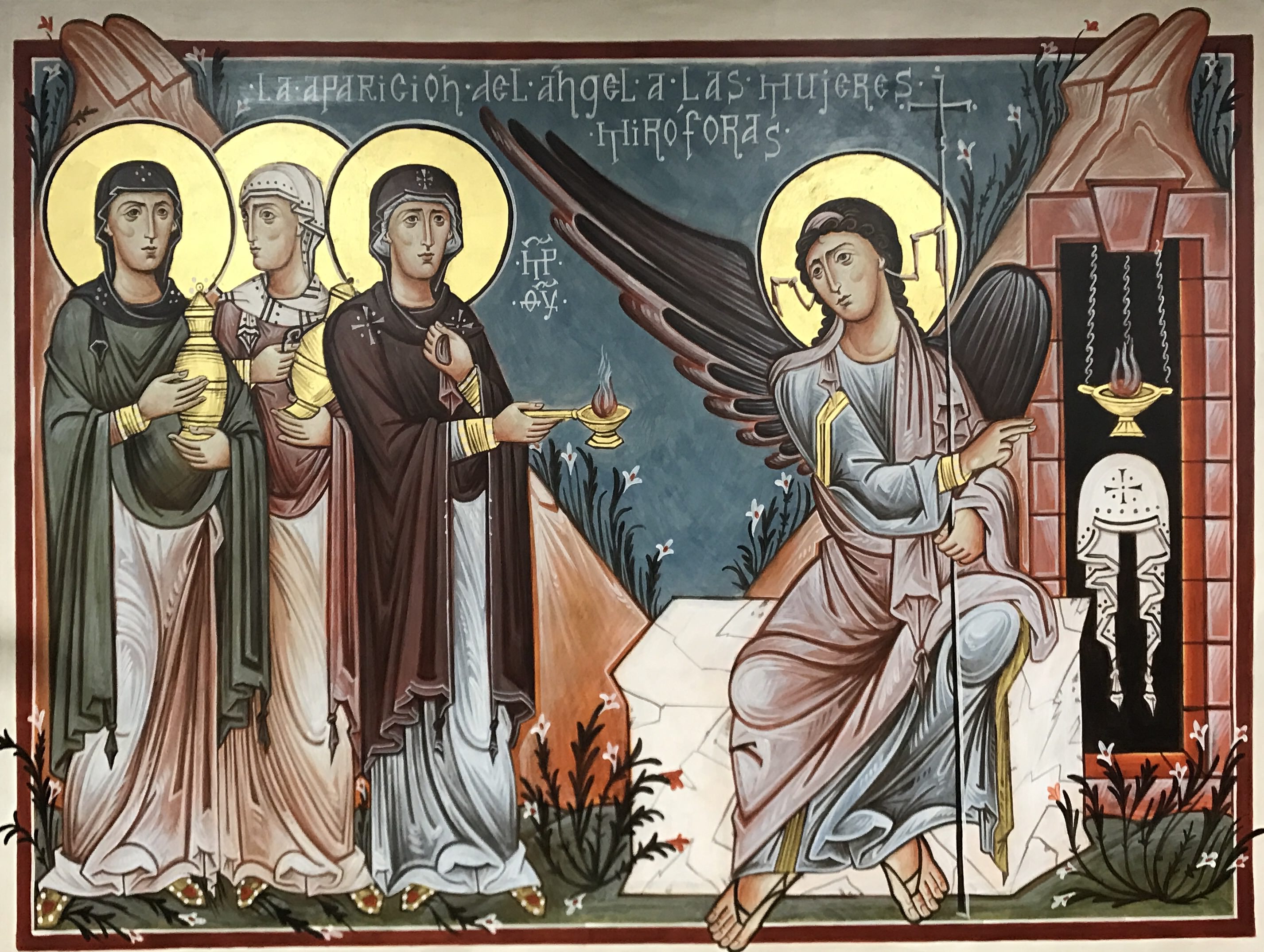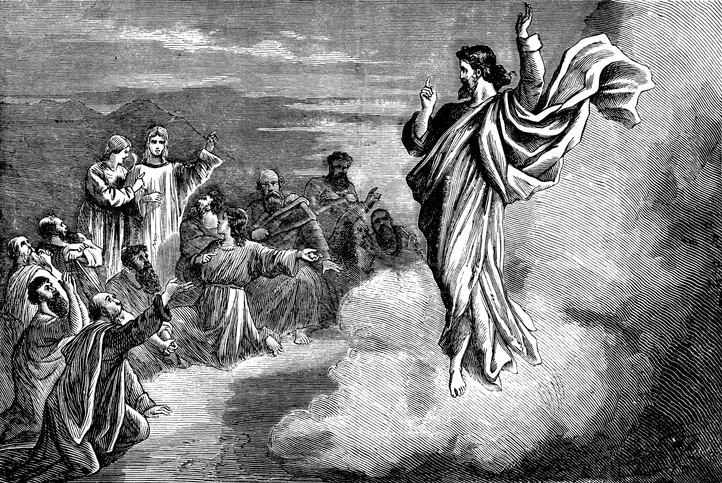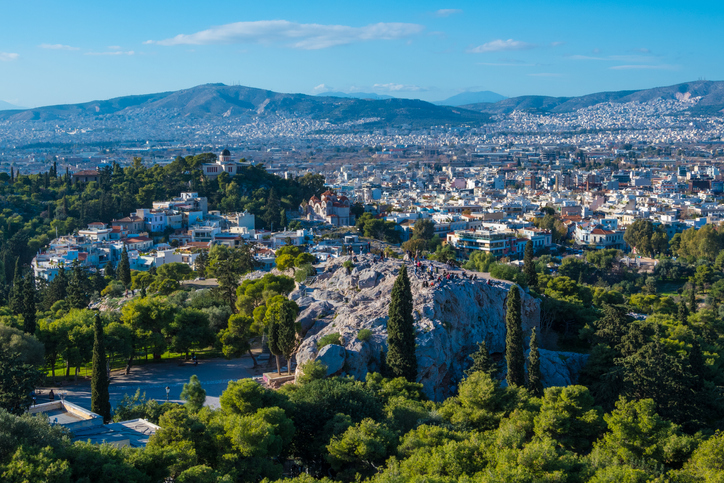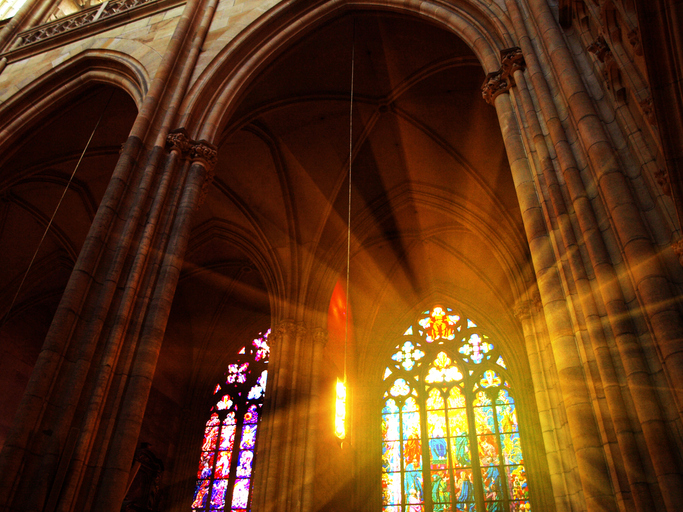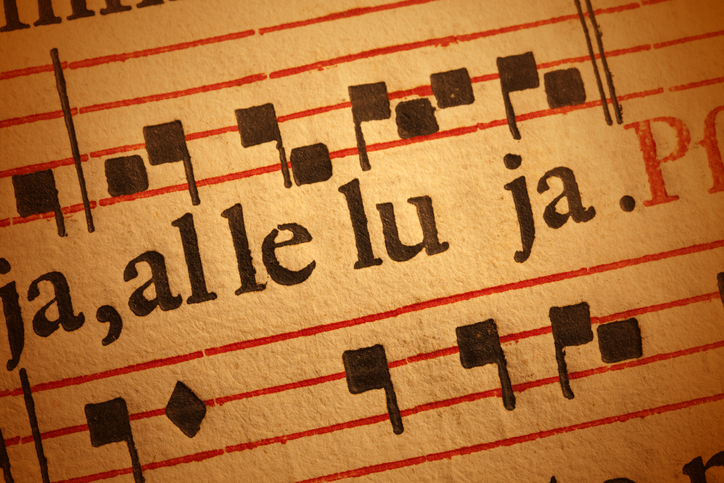It can be easy to get bogged down in the struggles of daily life. Even when we are not dealing with a global pandemic, fear, anxiety, and depression can quickly creep in. Uncertainty leads to fear, fear leads to anxiety, anxiety leads to disorientation, and disorientation leads to depression. Once we enter into this state, tunnel vision ensues. Our gaze remains fixed on the earth, unable to see anything beyond the immediate.
When we hear the readings at Mass, we sometimes skip over the Alleluia verse. Pay close attention to it today: “if then you were raised with Christ, seek what is above, where Christ is seated at the right hand of God” (Colossians 3:1). Seek what is above. This is a call for all experiencing uncertainty, fear, anxiety, and depression, but it is also a perennial call. No matter what the circumstances, we ought to look up, where Christ is seated at the right hand of God.
Saint Paul had to remind the disciples in Ephesus of this. As we hear in the first reading, they did not even know that the Holy Spirit existed. They had only been baptized with John’s baptism, and they did not realize that something greater awaited them: “‘John baptized with a baptism of repentance, telling the people to believe in the one who was to come after him, that is, in Jesus’” (Acts 19:4). The Ephesian disciples didn’t realize it, but they were always meant to look beyond earthly baptism. They were meant to be baptized into Christ, turning their gaze to the things that are above.
Christ reminds the Apostles of the same thing in the Gospel. Even when the Apostles are confident that they have reached the heights of faith, Jesus reminds them that there are trials ahead: ‘“Do you believe now? Behold, the hour is coming and has arrived when each of you will be scattered to his own home and you will leave me alone.’” (John 16:31-21). Each scattered into his own home, left alone…sound familiar? By now, I’m sure that we can all relate to that experience.
In these dark times and in the brighter days beginning to follow, Jesus tells us how to move forward: seek what is above. “But I am not alone, because the Father is with me. I have told you this so that you might have peace in me. In the world you will have trouble, but take courage, I have conquered the world.’” (John 16:32-33).
Take courage: Christ has conquered the world. The Father is with Him in heaven, where He has ascended in glory. This is simple enough to say, but how can we keep it in mind? How can we seek what is above, always focusing on the things of heaven? How can we have a heavenly perspective and experience the peace that Christ promises?
One practical way to cultivate a heavenly perspective is extemporaneous prayer, or prayer in the moment. Each time we encounter a difficult situation, an upcoming challenge, or even a great joy, we can quickly say a prayer to the Lord. “O God, give me courage and wisdom.” “Lord, be with me.” “Father, I give You praise for Your goodness.” These quick prayers keep us from getting stuck on earth. Each time we send up an extemporaneous prayer, we turn our head towards heaven, where Christ is seated at the right hand of God. Turning back to the earth, we carry His light with us.
Simply speaking about heavenly things is another good way to seek what is above. The more we talk about the Faith, God, and Christian life, the easier it is to see things in light of them. Having good friends who are willing to talk about their experiences with living the Christian life and are willing to engage the meatier topics of the Faith is a great thing. Even a quick mention of faith in a conversation, telling someone that we will pray for them, can turn our gaze upward. The more we are talking about heaven, the more it will permeate our lives.
In both troubling and good times, we are called to seek what is above, where Christ is seated at the right hand of God. Armed with the grace of the Holy Spirit, we can use extemporaneous prayer and spiritual conversation to remain with the Lord. He has conquered the world; we need only to keep His victory in sight.
Contact the author




